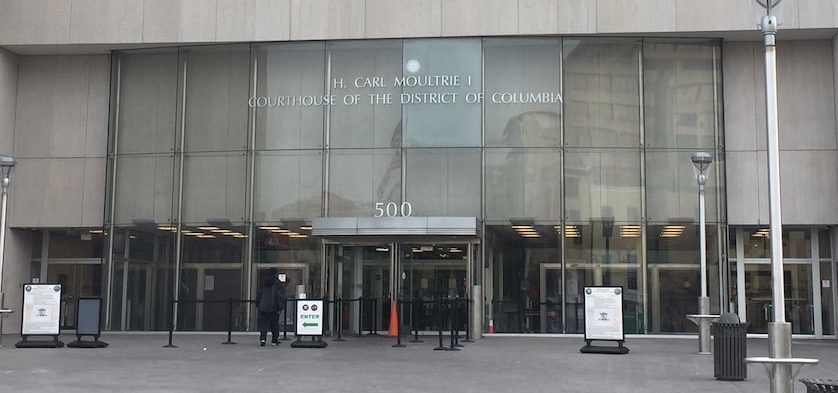
Judicial emergency in D.C. is extended
Chief Judge Anita Josey-Herring has issued an order extending the pandemic-related judicial emergency in D.C. through March 31, 2021.
All “statutory and rules-based time limits” will remain suspended during this time. This applies in criminal cases to, among things, the statute of limitations for initiating criminal proceedings as well as deadlines for preliminary hearings, indictments and trials.
Most cases in D.C. Superior Court will continue to be heard remotely; that is, with all parties participating by videoconference or phone. Some Criminal and Domestic Violence Division cases will be heard partially remotely; that is, with some parties present in person and others participating by videoconference or phone.
The Criminal Division has also issued its notice of intent to resume jury trials for detained defendants in Felony 2 cases that were previously scheduled for trial. Jury service is not included among Mayor Bowser’s restrictions on public gatherings during the pandemic. Felony 2 trials tend to be shorter in duration. In addition, they usually involve a single defendant, require a small panel for jury selection, and rely on local witnesses.
Partially-remote courtrooms
Courtroom C-10: Arraignments, presentments, bench warrant returns and extraditions.
Courtroom 112-R: Partially remote non-detained matters with defendants appearing before the judge in the courtroom for non-evidentiary hearings, including pretrial and probation show cause hearings. Walk-in bench warrants may report to this courtroom.
Courtrooms 203-R, 211-R, 215-R, and 310-R: Partially remote detained CF1, CF2, and CF3 preliminary hearings and misdemeanor detention hearings. Both the judge and defendant are present in person. Other parties participate by videoconference or phone.
Courtrooms 201-R, 202-R and 316-R: Partially remote non-jury trials and dispositive motion hearings for detained defendants with judge and defendants present in person. Other parties participate by videoconference or phone.
Remote courtrooms
Courtroom 111-R: Remote hearings for defendants participating in Drug Court (Monday/Wednesday) and Mental Health Court (Tuesday/Thursday) with some hearings set on Friday.
Courtrooms 115-R, 210-R, and 319-R: Remote substantive non- evidentiary matters for detained defendants, including dispositions, waivers of preliminary hearings, sentencings, and emergency bond review motions.
Courtroom 213-R: Remote substantive non-evidentiary matters for detained defendants in the morning, including dispositions, waivers of preliminary hearings, sentencings, etc. Initial scheduling conferences for detained defendants in the afternoon, with the defendant’s appearance waived.
Courtrooms 218-R and 311-R: Matters from Department of Youth Rehabilitation Services (DYRS) and Bureau of Prison (BOP) OP for detained defendants on substantive non-evidentiary matters and non-detained matters before the case judge.
Courtroom 220-R: Remote non-emergency probation show cause hearings.
Courtrooms 312-R and 313-R: Remote non-detained matters prosecuted by USAO (312-R) and OAG (313-R), including entry or completion of Deferred Prosecution or Sentencing Agreements, dispositions, and sentencings.
Courtrooms 314-R and 321-R: Remote scheduling hearings in detained matters previously scheduled with the defendant’s appearance waived.
Courtroom 317-R: Remote mental observation and contested competency hearings from Saint Elizabeth’s Hospital.
